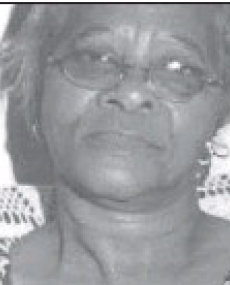
Nosipho Dastile was born in 1938 in Uitenhage, a town in the Eastern Cape. After finishing school, she worked as a community activist as well as a volunteer teacher at a Roman Catholic Mission School. Later, she moved to the Little Flower Primary School where she was a full-time teacher.
Following the growing political activism in South Africa after the institutionalisation of apartheid in 1948, Dastile started to become politically active and was one of the founders of the United Democratic Front (UDF) in Uitenhage. As her activism grew, she was elected as the Uitenhage Women’s Organisation’s first president and also became the region’s African National Congress Women’s League (ANCWL) chairperson shortly after the unbanning of liberation movements and exiled freedom fighters in 1990. Furthermore, from 1994 until 1999, she was among the first councillors elected in the new democratic Uitenhage Transitional Local Council. All of this catapulted her into becoming a well-known political figure in the area.
During the Defiance Campaign of the early1950s, Dastile (along with women such as Florence Matomela, Lillian Diedericks, Nontuthuzelo Mabala and Veronica Sobukwe) was in the forefront as one of the women who lead the campaign in Port Elizabeth, Eastern Cape.
In 2011, an exhibition titled: Yesterday’s Heroines, Today’s Inspiration, in honour of five women who contributed to the liberation struggle was held at the Red Location Museum in New Brighton, Port Elizabeth. Dastile was one of the women celebrated in the year-long exhibition.
Dastile died in May 2009 at the age of 71 after battling a long illness. At the time of her death, she had retired from political activities and was volunteering at the Ruth Dano crèche in Uitenhage. Whether she was fighting in the liberation struggle or teaching children in her community, Dastile is remembered as a proud servant of her community. She was buried on 23 May 2009.